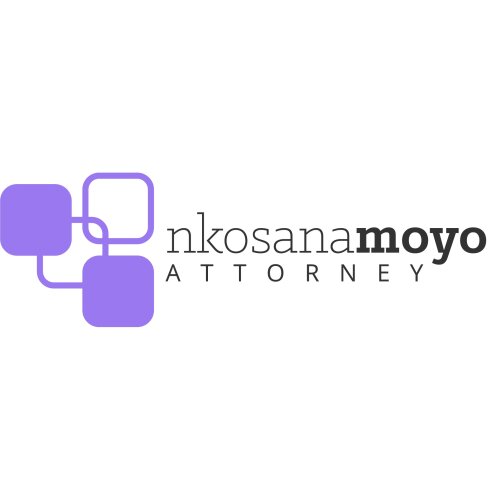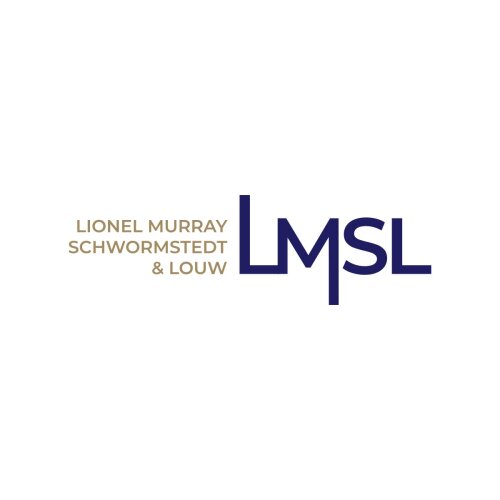Best Media, Technology and Telecoms Lawyers in South Africa
Share your needs with us, get contacted by law firms.
Free. Takes 2 min.
Or refine your search by selecting a city:
List of the best lawyers in South Africa
About Media, Technology and Telecoms Law in South Africa
Media, Technology, and Telecoms (MTT) law in South Africa encompasses a wide range of legal issues related to the creation, distribution, and consumption of content, as well as the technological means through which this content is delivered. This legal domain also covers telecommunications infrastructure, internet services, data privacy, and digital transactions. Given the rapid advancement in technology and the increasing digital footprint, legal regulation in this field has become essential to ensure fair practice, innovation, and protection of rights within the industry.
Why You May Need a Lawyer
There are several scenarios where one might require legal assistance in the field of Media, Technology, and Telecoms in South Africa:
- Intellectual Property (IP) Disputes: Issues involving copyright, patents, or trademarks related to media and technology products.
- Data Privacy Concerns: Ensuring compliance with the Protection of Personal Information Act (POPIA).
- Contract Negotiations: Dealing with contracts for telecom services, tech partnerships, or media content distribution.
- Defamation and Media Law: Handling cases of alleged defamation or needing advice on media freedom and censorship laws.
- Telecom Regulations: Navigating the landscape of telecom regulations set by the Independent Communications Authority of South Africa (ICASA).
- Tech Startups and Innovation: Legal advice for launching new tech ventures, including understanding compliance and regulatory requirements.
Local Laws Overview
The legal framework governing Media, Technology, and Telecoms in South Africa is multifaceted and includes several key pieces of legislation:
- Electronic Communications Act (ECA): Governs the telecom sector and aims to promote fair competition and innovation.
- Protection of Personal Information Act (POPIA): Focuses on personal data protection and privacy rights.
- Copyright Act: Protects the rights of creators and publishers in the media sector.
- Cybercrimes Act: Aims to address issues of cybercrime and secure communications networks.
- Consumer Protection Act (CPA): Provides guidelines for fair consumer treatment in media and telecom services.
Frequently Asked Questions
What is the purpose of the Electronic Communications Act?
The Electronic Communications Act is designed to ensure effective regulation of telecommunication and broadcasting services, promote fair competition, and encourage investment in infrastructure.
How does the Protection of Personal Information Act affect businesses?
POPIA requires businesses to secure personal data of consumers and follow strict guidelines for data processing and sharing. Non-compliance can lead to significant penalties.
What should I do if I face online defamation?
Consider consulting a legal professional who can guide you on defamation laws and help you take appropriate action, including seeking redress through the courts if necessary.
How can I protect my intellectual property in a tech startup?
To protect your IP, you should register copyrights, trademarks, or patents as applicable, and consider nondisclosure agreements (NDAs) for sharing proprietary information.
Who regulates the telecom industry in South Africa?
The Independent Communications Authority of South Africa (ICASA) is the main regulatory body overseeing the telecom industry in the country.
What are my rights as a consumer of telecom services?
Under the Consumer Protection Act, you have rights to fair treatment, quality services, and redress for complaints regarding telecom services.
What legal support is available for media professionals?
Media professionals can seek legal assistance for contract negotiations, understanding defamation laws, and addressing issues related to censorship or broadcasting rights.
Are there specific laws for online content and advertising?
Yes, online content and advertising must comply with the Advertising Standards Authority of South Africa (ASA) guidelines, as well as digital media regulations under the ECA and CPA.
How do I handle data breaches as a business owner?
In case of a data breach, you are obliged under POPIA to notify both the affected individuals and the Information Regulator promptly and take steps to mitigate further risks.
What are the legal challenges for cross-border digital services?
Cross-border digital services must navigate complex issues such as differing intellectual property laws, consumer protection regulations, and data transfer rules between nations.
Additional Resources
Here are some valuable resources for legal assistance in Media, Technology, and Telecoms in South Africa:
- Independent Communications Authority of South Africa (ICASA): Regulator of telecommunications and broadcasting sectors.
- Information Regulator (South Africa): Enforces compliance with POPIA and oversees data protection.
- South African Law Reform Commission: Provides insights into ongoing law reform projects and publications.
- Advertising Standards Authority of South Africa (ASA): Offers guidelines on advertising standards and conduct.
Next Steps
If you require legal assistance in the field of Media, Technology, and Telecoms, consider the following steps:
- Research and Identify: Research potential legal firms or experts specializing in MTT law and create a shortlist based on their experience and expertise.
- Schedule Consultations: Arrange consultations with shortlisted legal experts to discuss your needs and assess whether they are a good fit for your case.
- Prepare Documentation: Gather all relevant documents and information pertaining to your legal matter to facilitate an in-depth discussion with your legal counsel.
- Discuss Fees and Services: Clearly understand the fee structure and services offered by your potential legal advisor to ensure alignment with your expectations.
Lawzana helps you find the best lawyers and law firms in South Africa through a curated and pre-screened list of qualified legal professionals. Our platform offers rankings and detailed profiles of attorneys and law firms, allowing you to compare based on practice areas, including Media, Technology and Telecoms, experience, and client feedback.
Each profile includes a description of the firm's areas of practice, client reviews, team members and partners, year of establishment, spoken languages, office locations, contact information, social media presence, and any published articles or resources. Most firms on our platform speak English and are experienced in both local and international legal matters.
Get a quote from top-rated law firms in South Africa — quickly, securely, and without unnecessary hassle.
Disclaimer:
The information provided on this page is for general informational purposes only and does not constitute legal advice. While we strive to ensure the accuracy and relevance of the content, legal information may change over time, and interpretations of the law can vary. You should always consult with a qualified legal professional for advice specific to your situation.
We disclaim all liability for actions taken or not taken based on the content of this page. If you believe any information is incorrect or outdated, please contact us, and we will review and update it where appropriate.
Browse media, technology and telecoms law firms by service in South Africa
South Africa Attorneys in related practice areas.
Browse media, technology and telecoms law firms by city in South Africa
Refine your search by selecting a city.















